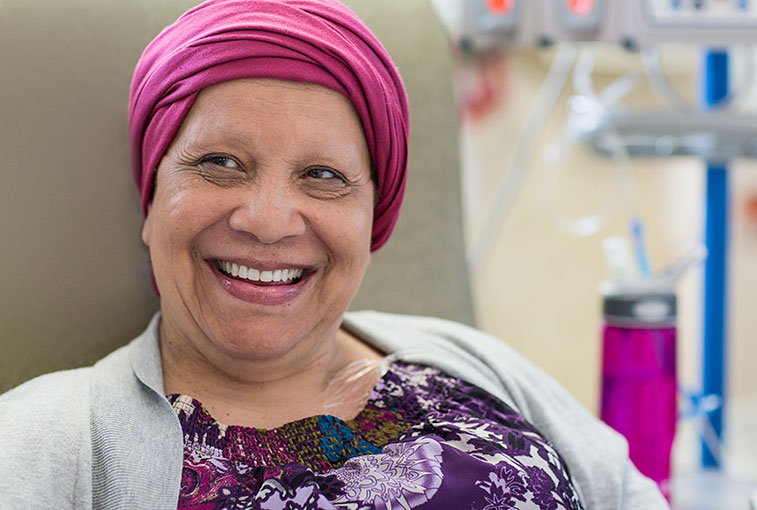How Angelina Jolie changed the discussion around breast cancer
A few years ago, actress Angelina Jolie wrote an article for The New York Times about getting genetic testing and, as a result, a double mastectomy.
Based on her family’s history with cancer and genetic tests showing she carried a mutation in a gene called BRCA1, Jolie statistically had a higher chance of developing breast cancer. She had what’s called a prophylactic mastectomy, which means she had her breasts removed before being diagnosed with breast cancer.
After this well-known celebrity talked openly about genetic testing and preventive cancer treatments, many providers—including ones at Sanford Health—said they had more patients asking about prophylactic measures, and tests for BRCA1 and BRCA2 were higher than average.
Genetic tests aren’t just for the rich and famous—they’re becoming more accessible every day. The information they provide and what you should do with it is not always black and white. There’s a lot to consider, and to discuss with your provider, about your concerns with breast cancer.
Breast cancer’s genetic link
Genetic research has found several genes that when mutated can increases the risk for breast cancer. The two most common are BRCA1 and BRCA2.
People with mutations in these genes are at a higher risk of developing breast or ovarian cancer in their lifetimes.
The direct link between BRCA1 and BRCA2 and breast cancer was discovered in 1994 and 1995.
At the time that the link was discovered, a company patented the testing of these genes. But in 2013, the same year Jolie published her article, the patent was reversed.
With this reversal, other companies could offer testing for the BRCA1 and BRCA2 genes.
Hurdles for genetic testing
For years, many insurance companies denied coverage of genetic testing. As technology and research advance, though, more insurance companies are beginning to cover all or part of the cost of genetic testing for things like the BRCA1 and BRCA2 genes.
Even out of pocket, testing for BRCA1 and BRCA2 is not nearly as expensive as it once was. Still, the cost of the test can be prohibitive for some women. Some patients are opting to cover the cost themselves to have the information to discuss with their providers.
Some direct-to-consumer genetic tests are emerging as well, but these offer even more limitations in what they can and can’t tell you.
For example, a 23andMe test has BRCA1 and BRCA2 indicators—but it doesn’t test the entire genes. It can only identify three specific variants in the genes, which are only slightly more prevalent in a very small number of people in a very specific population.
Read more about this from a Sanford Health genetic counselor.
When to consider a genetic test for breast cancer
While mutations in the BRCA1 and BRCA2 genes can indicate a person’s breast cancer risk, it’s important to note that only about 10 percent of all breast cancer diagnoses are hereditary breast cancer.
That means the vast majority of breast cancers have no hereditary genetic source.
While regular screenings and discussions with health care professionals remain the best course of action for many women, some may benefit from genetic testing.
Your family history is the number one predictor of your risk of developing breast cancer. Some factors that may indicate you have a hereditary risk of developing breast cancer include:
- Multiple generations of your family affected by the same cancer
- Family members with multiple cancers
- Male family members diagnosed with breast cancer
- Early-age cancer diagnoses in your family
When you and your provider discuss your risk of hereditary breast cancer, running a genetic test may be something to consider.
What to do if you’re worried about breast cancer
Having access to more information about your breast cancer risk can feel reassuring, or terrifying, or both. If you’re concerned, make sure to discuss it with your provider or another health care professional.
Be specific about what you’re concerned about.
Are you having symptoms that worry you?
Has a family member been recently diagnosed?
Did you go down a rabbit hole of Internet articles?
Your provider can address your specific concerns, and talk with you about the next best step.
Your health and your peace of mind are our top priority.
Read more
- Can at-home DNA tests predict breast cancer?
- Genetic counselors can use family history to spot your breast cancer risk
- 4 breast cancer screening options
- What’s the role of genetics in breast and ovarian cancer?
- Understanding disease risk through your genetics
- Myths about prenatal testing
…
Posted In Cancer, Genetics, Health Information, Women's
